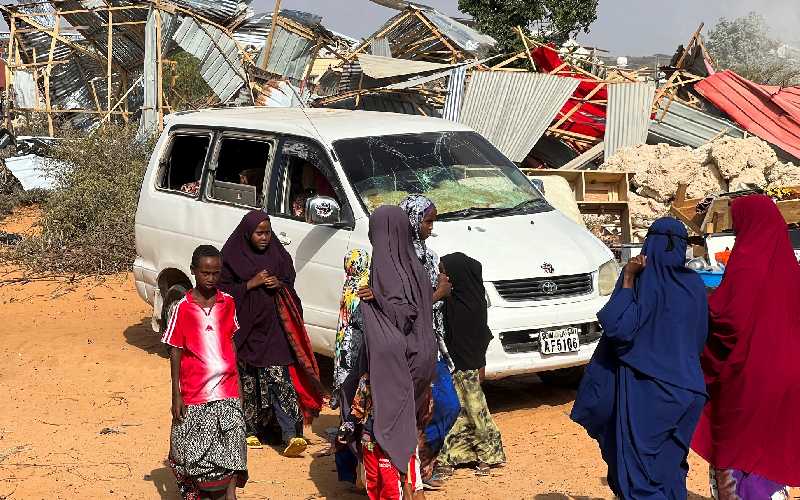×
The Standard e-Paper
Kenya’s Boldest Voice

Somali women and children stand next a car and their destroyed homes following an overnight attack in Mogadishu, Somalia February 16, 2022. [Reuters]
Al Shabaab militants attacked several police stations and security checkpoints in Somalia's capital Mogadishu early on Wednesday, officials and the militants said, a show of force as the nation prepares for a much-delayed presidential election.